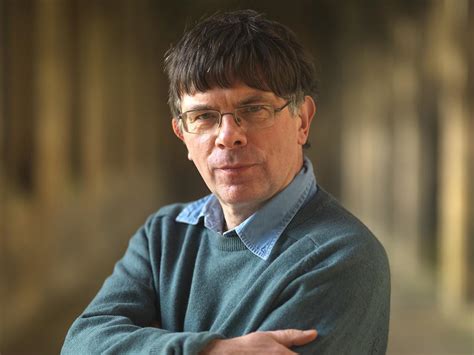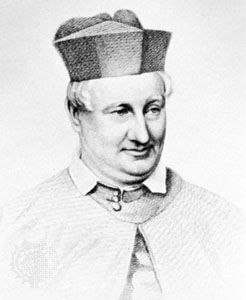A Quote by Simon Conway Morris
It seldom seems to strike the ultra-Darwinists that theology might have its own richness and subtleties, and might strange thought actually tell us things about the world that are not only to our real advantage, but will never be revealed by science.
Related Quotes
The ultimate goal of theology isn't knowledge, but worship. If our learning and knowledge of God do not lead to the joyful praise of God, we have failed. We learn only that we might laud, which is to say that theology without doxology is idolatry. The only theology worth studying is a theology that can be sung!
Others of us are lost. We're forever seeking. We torture ourselves with philosophies and ache to see the world. We question everything, even our own existence. We ask a lifetime of questions and are never satisfied with the answers because we don't recognize anyone as an authority to give them. We see life and the world as an enormous puzzle that we might never understand, that our questions might go unanswered until the day we die, almost never occurs to us. And when it does, it fills us with dread.
In history there are no control groups. There is no one to tell us what might have been. We weep over the might have been, but there is no might have been. There never was. It is supposed to be true that those who do not know history are condemned to repeat it. I don't believe knowing can save us. What is constant in history is greed and foolishness and a love of blood and this is a thing that even God--who knows all that can be known--seems powerless to change.
If love could force my own thoughts over the edge of the world and out of time, then could I not see how even divine omnipotence might by the force of its own love be swayed down to the world? ...how it might, because it could know its own creatures only by compassion, put on mortal flesh, become a man, and walk among us, assume our nature and our fate, suffer our faults and our death?
Some might say that sunshine follows thunderGo and tell it to the man who cannot shineSome might say that we should never ponderOn our thoughts today cos they will sway over timeSome might say they don't believe in heaven Go and tell it to the man who lives in hellSome might say you get what you've been givenIf you don't get yours I won't get mine as well
Science manipulates things and gives up living in them. It makes its own limited models of things; operating upon these indices or variables to effect whatever transformations are permitted by their definition, it comes face to face with the real world only at rare intervals. Science is and always will be that admirably active, ingenious, and bold way of thinking whose fundamental bias is to treat everything as though it were an object-in-general - as though it meant nothing to us and yet was predestined for our own use.
Theology recognizes the contingency of human existence only to derive it from a necessary being, that is, to remove it. Theology makes use of philosophical wonder only for the purpose of motivating an affirmation which ends it. Philosophy, on the other hand, arouses us to what is problematic in our own existence and in that of the world, to such a point that we shall never be cured of searching for a solution.
Each of us will have our own Fridays—those days when the universe itself seems shattered and the shards of our world lie littered about us in pieces. We all will experience those broken times when it seems we can never be put together again. We will all have our Fridays. But I testify to you in the name of the One who conquered death—Sunday will come. In the darkness of our sorrow, Sunday will come. No matter our desperation, no matter our grief, Sunday will come. In this life or the next, Sunday will come.



































